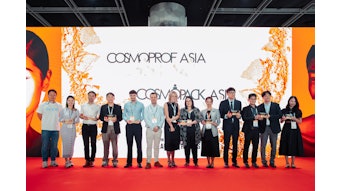- When things about your brand—the formulation, the packaging, the marketing, etc.—need to be changed, as the brand owner/developer, you have to figure out a way to be honest and objective about the process.
- While educating consumers on your products and their uses is highly necessary, make sure to pick your battles wisely.
- The connection the brand and its products has to make is with the consumer—unfortunately, not with you, the brand owner. Make sure you are always keeping the consumer as the front-of-mind target when making development decisions for your brand.
One of the key challenges to being a beauty brand owner is to not get so close to every aspect of the line that you ignore coherent, constructive and consistent feedback from consumers, experts and sometimes both. Usually, this happens when brand owners become too emotionally tied to specific aspects of the brand—Kelly Kovack, partner at Brand Growth Management, refers to this as “talking to myself.”
To help fight this, it’s important to often ask yourself questions such as, “Do the things I am attached to about my brand only matter to me?” “Do they resonate with the consumer?” “Am I constantly trying to convince my customers about the importance and meaning of certain things?” And, in effect, “Am I talking to myself?”
For a couple of years, I was indeed talking to myself in regard to my brand Alchimie Forever. I became so attached to certain aspects of my line that I delayed implementing tweaks to our branding and packaging to the detriment of sales. My brand had become my baby; I thought it was perfect in every way, even in its eccentricities and quirkiness. I was receiving feedback from my customers, from branding experts, from my team even, that some of these quirks were actually hindering sales—and actually were not quirks at all, but rather mistakes that could be relatively easily fixed to make the brand (“the baby”) stronger.
Below is a case study on the rebranding of one of Alchimie Forever’s products, the Gentle Antioxidant Refining Scrub, that illustrates this process of improvement.
Version One
In the initial launch of Alchimie Forever, we certainly took the time to research and carefully craft the products. But being too close with that kind of attention for too long can be detrimental to your products and your brand.
Formulation. First, let’s look at the actual formulation. Alchimie Forever products launched with combinations of parabens as our preservative and antibacterial agents. One of our core values as a company is to be accountable to science first and foremost. And science truly says that parabens are the safest and most effective preservatives available for use in cosmetics. (The single study that links parabens to breast cancer is actually based on a flawed methodology.)
Armed with this knowledge, we ignored the pressure from the media and, more significantly, from consumers to switch the preservative system out, deciding that it was our burden to bear to re-educate the entire beauty consumer population and make it realize that parabens were the way to go. Truth and science would prevail, we thought.
Mental note: Remember that at a certain point, perception becomes reality. And that this is particularly true in the beauty industry.
Product names. Now, on to the engaging way we can title our products. When Alchimie Forever launched its line in 2000 at Forever Laser Institut, our medical spa located in Geneva, Switzerland, we thought of the most brilliant idea—we would name the products after laser terms, such as the names or parts of lasers. After all, my father, Dr. Luigi Polla, had been one of the first dermatologists to bring laser technology for use on the skin to Europe, and had built his reputation on this technology. The very medical spa we owned and in which Alchimie Forever was born even had the name “laser” in it.
We convinced ourselves that these technical, unknown (some would say “intimidating and meaningless”) words would intrigue consumers and speak to the high-tech nature of our brand. Hence our products were named (and we spent countless dollars on trademarks) Nd:YAG, Yttrium, Alexandrite, Excimer, KTP and so on. Specifically, we named our scrub Excimer+. Our cleansers were named Excimer, and adding the plus sign made sense to us because exfoliating is really extra good cleansing. We couldn’t just be talking to ourselves, right?
Packaging. Up next, we discussed how the products appear on shelves and vanities, as well as marketing materials. We have always been a fan of jars. Part of the focus of our line is the sensual aspect of products, namely the textures and aromas, as well as the way our products look. We loved the look of the small red beads in the white creamy texture of the scrub. Indeed, we developed various marketing efforts around that very image. No matter that consumers think, jars are easily “contaminated.” No matter that jars are harder to open and close than tubes with a flip top. No matter, because the beauty of the product is more visible in a jar. Right ...?
Version Two
After a time, we at Alchimie Forever decided it was time for some changes.
Formulation. We finally relented and listened to the marketplace. Even if consumers do not fully understand why they don’t want parabens in their products, they know for sure they don’t want them. Instead of spending our time and energy re-educating them—a battle a small niche brand such as ours cannot win—we decided to spend our time and energy on getting our products in the hand of consumers. After all, we are in the business of improving skin. Over the past two years, we have been reformulating our products to remove parabens, replacing them with a combination of benzyl alcohol, benzoic acid and sorbic acid. This combination is scientifically as sound as was our combination of various parabens—and yet is much more palatable to consumers.
Product names. Our scrub is the first product whose box does not have a laser name. Removing our laser names was possibly the decision that was the most difficult for me. Indeed, once I considered this subject to be up for discussion, we had very heated internal conversations about it. Part of the team was thankful that, finally, I had come around to what to them seemed evident. But another part of the team was vehemently opposed to this change. We eventually took the discussion to the level of “Can hero products be heros if they don’t have a name?” This made for interesting competitor research, as well as interesting internal debate.
In the end, we compromised. We are removing all of our laser names, except for the name “Kantic,” which my father is particularly attached to and is the name of our hero products. Now the task is to make sure that name is understood by the consumer, ensuring it is not something that matters only to us internally.
Packaging. Apparently, consumers do not open a jar of our scrub to admire the beautiful cranberry red beads. Consumers like tubes. Go figure. Also, tubes are much more affordable than jars. That helped in weighing the decision toward a tube. Our Gentle Antioxidant Refining Scrub is now packaged in a tube, and it is selling better than it ever has.
Additionally, a significant portion of our consumer population is male, and in particular for men, a tube is much less intimidating to have in the bathroom.
Making It Meaningful
The improvement process I described is one that took the Alchimie Forever team four years to go through with this specific product. Could we have realized the need for these changes more quickly? How might we have launched the scrub perfectly the first time? I asked Brand Growth Management’s Kelly Kovack to share some of her wisdom on these thoughts.
About marketing, Kovack says, “A lot of brands go through discussions about things that are so close to them; they feel the core about what their brands are about, but need to do a gut check. Always ask yourself: ‘Are we talking to ourselves? Does anyone else care?’ The more you talk about it, the more you try to talk yourself into it, the more you start to believe that it is working. You need to let things go.
“Branding and marketing of any brand becomes so emotional. It is the eye candy of the business, the most fun part of the business. If small brands applied the same discipline to branding and marketing as they do to sales and budgeting and saw things through a more analytical lens, the emotional bias would be minimized.
“When you get to the point where things are not working, when a product is not performing the way you expected it to, you need to understand why. To do that, you need to strip the emotion from the discussion, no matter how painful that might be. Ask yourself the questions: ‘Does anyone care? Does this mean something only to me?’ If the answer is yes, you know what to do—no matter how hard that might be. Small brand owners want everything to be perfect. Striving for perfection is important, but sometimes you need to let things go to move the business forward,” Kovack explains.
About packaging, she comments, “Make your boxes work harder. Packaging needs to be more than pretty. Pretty packaging will get you so far—initial buy-in, editorial coverage—but once the box is on the shelf, it has to do the selling for you.
“The way I approach packaging is different than how I approached it years ago, because the retail environment has changed. I assume an open-sell environment—there is no one to answer questions or to sell. Does the consumer get every piece of information from the packaging? There is fine line, however, as the solution is not to load the box with copy. Too much information will add confusion. Every single word needs to be there for a reason, as do the colors or any icon. Everything needs to work to either deselect the product or assist in the sale. I think of it as avoiding ‘useless modifiers’ on your package. The real estate is too expensive,” Kovack concludes.
Having worked with Kovack on Alchimie Forever, I can only say that everything she said resonates with me. And while it is certainly easier said than done, this type of evaluation is also most certainly worth it to your brand, your products and yourself.
Ada Polla is the co-creator of the Swiss antioxidant skin care line Alchimie Forever, which launched in the U.S. in 2004. Her strategic focus and implementation have yielded double-digit annual revenue growth for the company. She holds an MBA from Georgetown University, majored in art history and political science at Harvard University and graduated magna cum laude with a Bachelor of Arts degree in 1999. She is also a GCI magazine editorial advisor.










